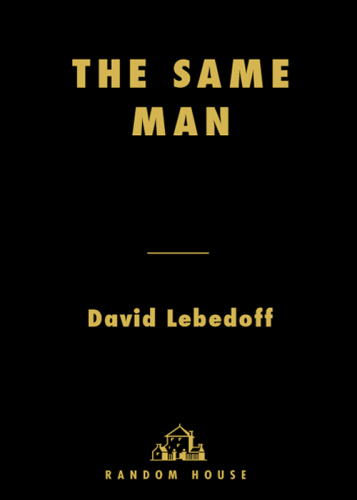
The Same Man
George Orwell & Evelyn Waugh in Love and War
کتاب های مرتبط
- اطلاعات
- نقد و بررسی
- دیدگاه کاربران
نقد و بررسی

June 16, 2008
For those wearied by doorstop biographies, this lean and urbane dual portrait is a breath of fresh air. As lawyer and writer Lebedoff (Cleaning Up
) makes clear, on the surface no two British writers could be more different. Evelyn Waugh was a loud convert to Catholicism, an even louder social climber and very much a man of Empire. George Orwell (Eric Blair) could best be described as a long-suffering atheistic humanist, a utopian socialist and dreamer. Waugh succeeded early; Orwell was an obscure polemicist until his masterpieces Animal Farm
and 1984
, which were written at the end of his life. But both men were born the same year (1903) and came from the same class. They admired each other's writing and moral courage, says Lebedoff, and finally met six months before the bed-ridden Orwell's death in 1950. Both men, the author says, rejected not only the immorality of dictators in their own time but the moral relativism they foresaw in the future. Aside from a slightly rambling chapter of summation, Lebedoff nimbly compares and contrasts the lives and art of these literary titans. 8 pages of photos.

June 15, 2008
Lebedoff's ("The Uncivil War") thesis is that writers George Orwell and Evelyn Waugh, opposites in nearly all other respects, were at heart alike, namely, in their fierce and undying opposition to and foreseeing of such evils as moral relativism and the corruption of language. Lebedoff's unpretentious writing style, marked by a preference for proletarian short sentences, crackles with wit and playfulness as well as ardent advocacy for these embattled twin prophets. He laces his two brief biographies with sharp-edged details that brightly illuminate his subjects' innermost characters. The 19-year-old Orwell (whose life story Lebedoff treats as an "Ein Heldenleben") grew to hate the English class system and his role in Burma as "visible overseer of empire." So began his willed descent down the social ladder, to a point of view that thereafter informed his writing. Concurrently, his contemporary, Waugh, who hungered after wealth and fame as a writer, too, reached a point of self-loathing, abandoning "the vacuity of life without faith" through conversion to Catholicism. Brief and to the point, this thrillingly written study of two of the 20th century's great social icons will impel readers to return to their timeless works. Recommended for all libraries.Charles C. Nash, formerly with Cottey Coll., Nevada, MO
Copyright 2008 Library Journal, LLC Used with permission.

Starred review from July 1, 2008
Born in the same year (1903), of the same social class, and both public-school educated (Orwell at Eton, no less), twentieth-century Englands greatest political essayist and greatest satirical novelist otherwise seem polar opposites. Orwell the socialist sometimes lived as a tramp, compromising his already fragile health, to understand the lives of the poor; he despised nothing more than bullying. Waugh the social climber hoarded aristocratic friends, marrying into the same lofty family, the Herberts, twice; he was a notorious bully. Saying they are the same man seems ludicrous. But, tracing their lives in parallel, Lebedoff convinces us, first, of their equal devotion to country and family and, then, that they came to see the twentieth century very similarly, as a time imperiled by ideologues, decadence, cultural lies, and the assault on tradition at all levels and in all institutions of society (the atheist Orwell rued the decline of Christian faith just as genuinely as the Catholic convert Waugh). Whereas Orwell thought that life could be improved, however, Waugh decided that real improvement lay only in the life to come. They met once, when Orwell was dying. The reputations and influence of both writers only increase, making Lebedoffs wonderfully sympathetic interpretation of them a book those interested in either or both must read and will, most probably, love.(Reprinted with permission of Booklist, copyright 2008, American Library Association.)

























دیدگاه کاربران